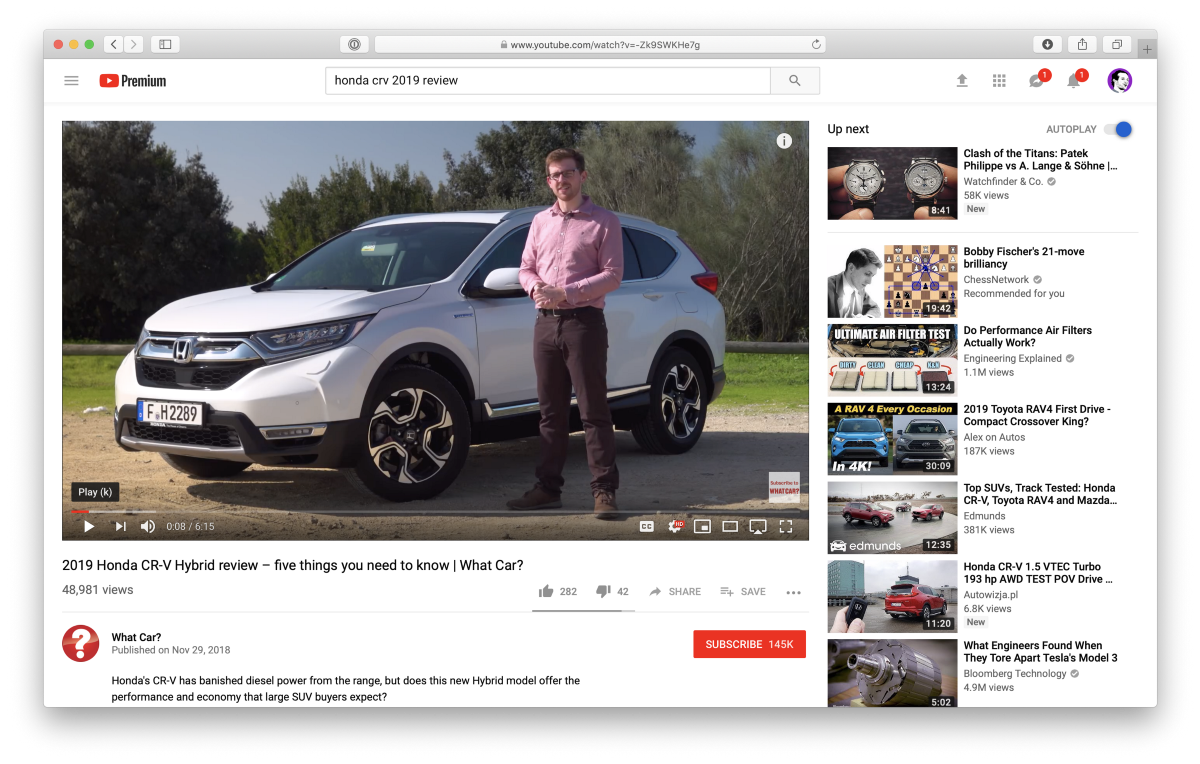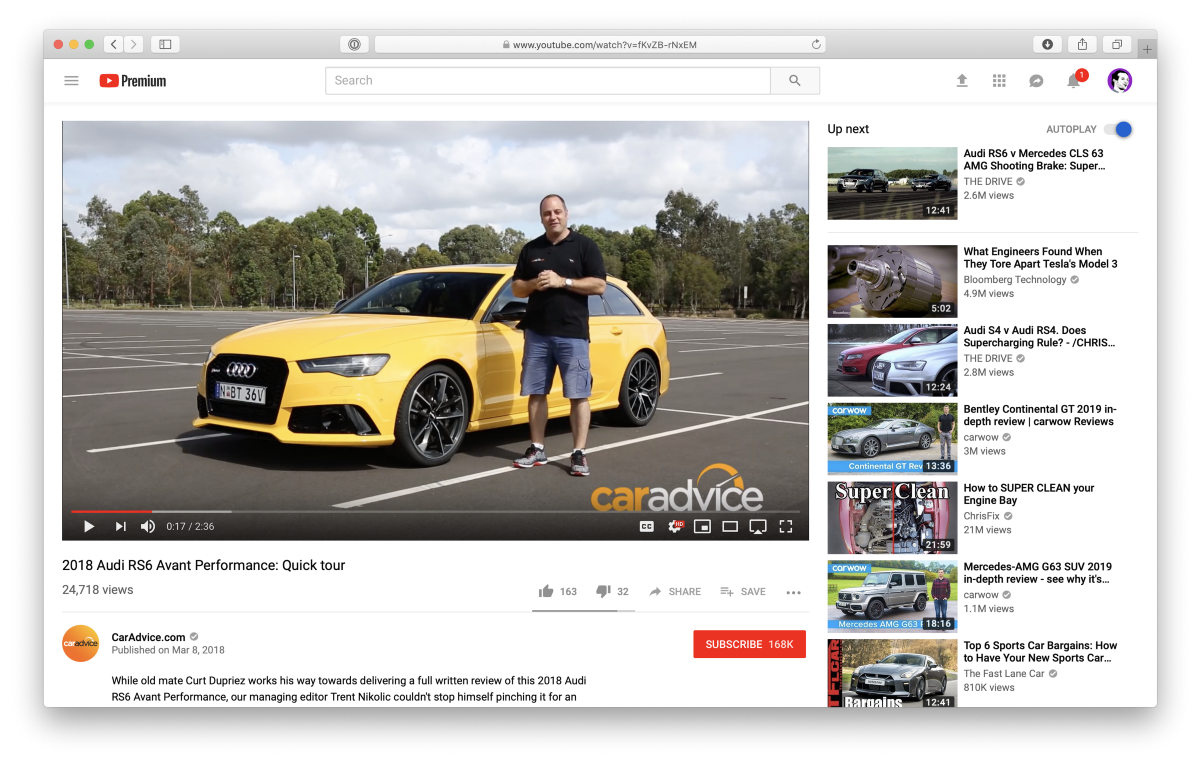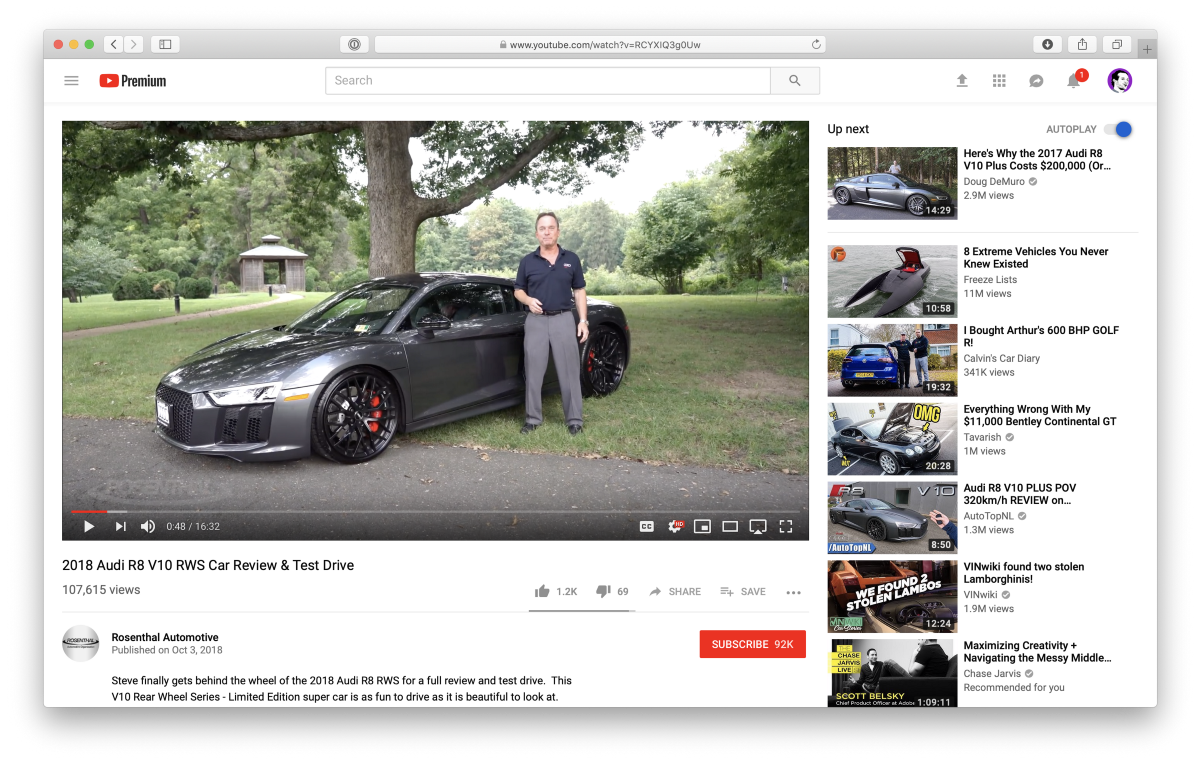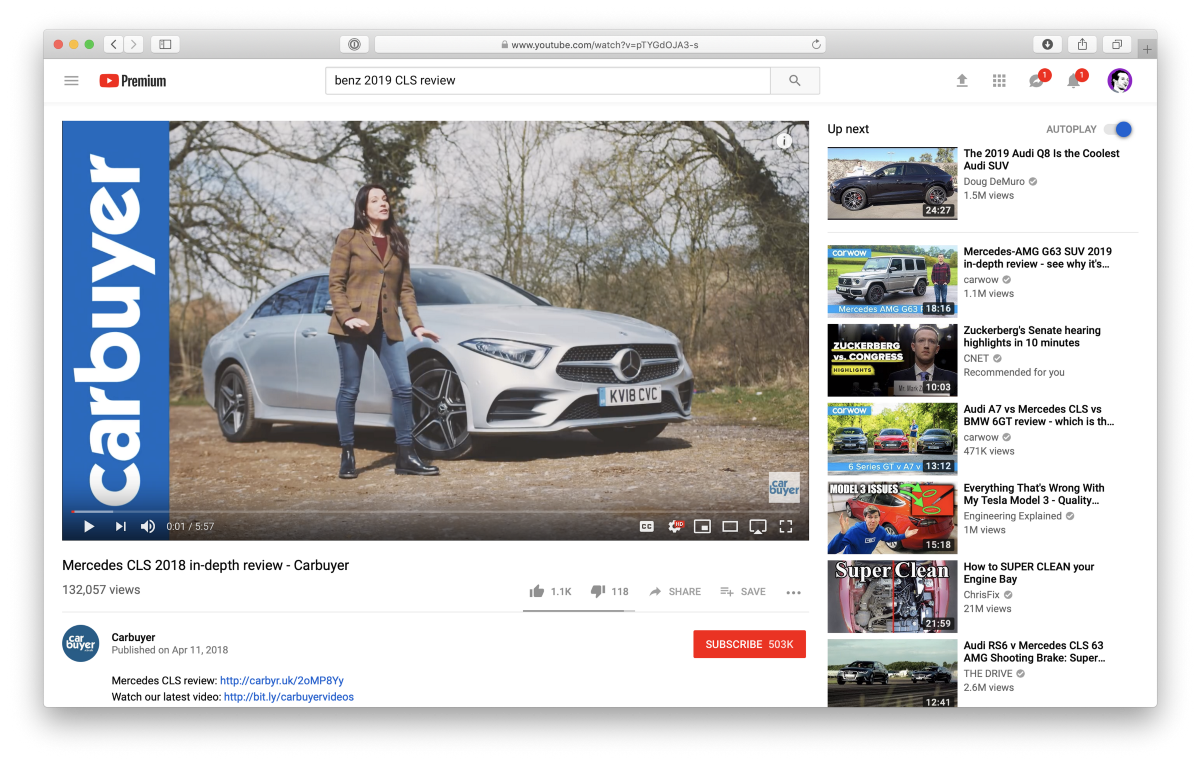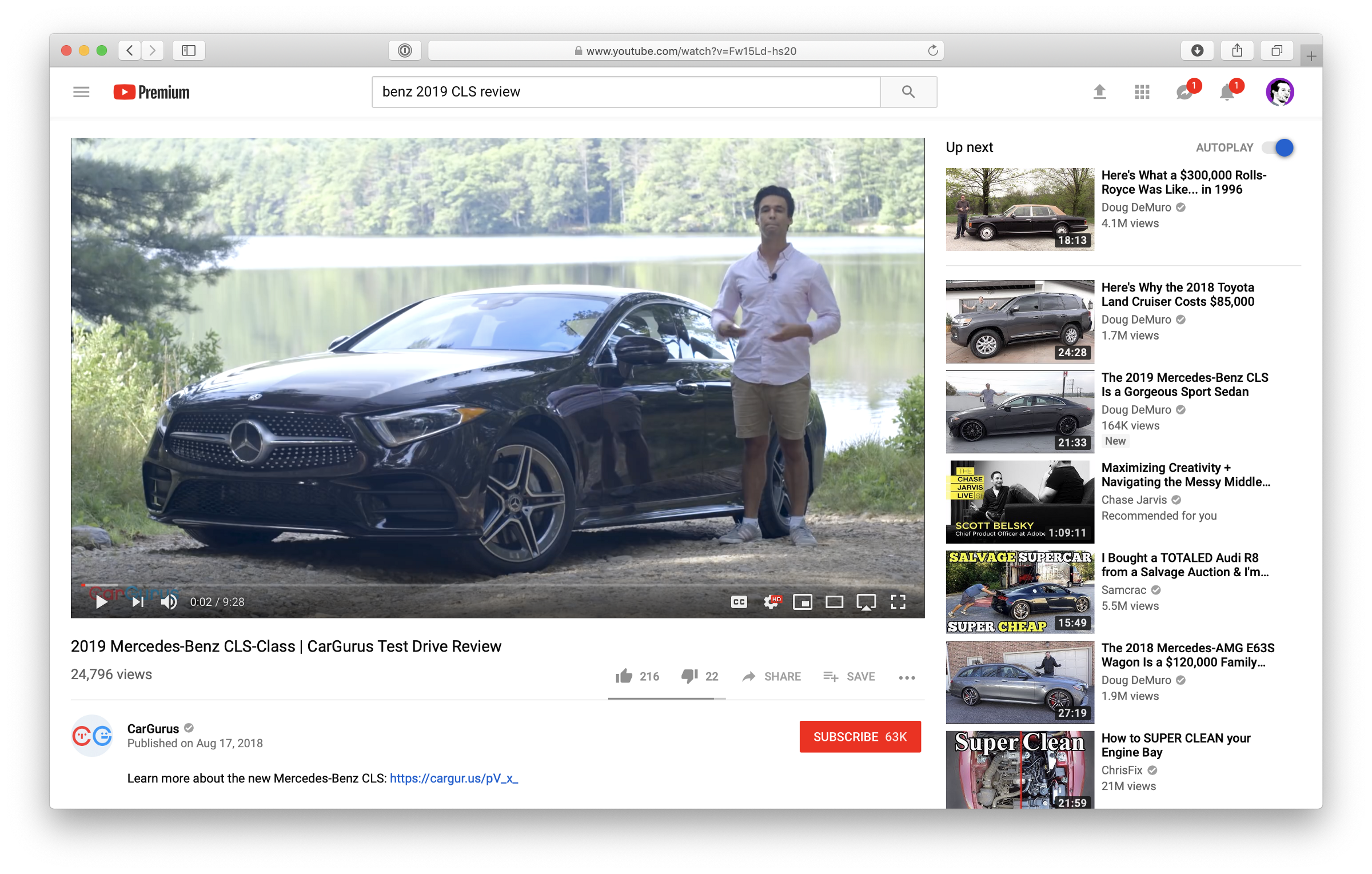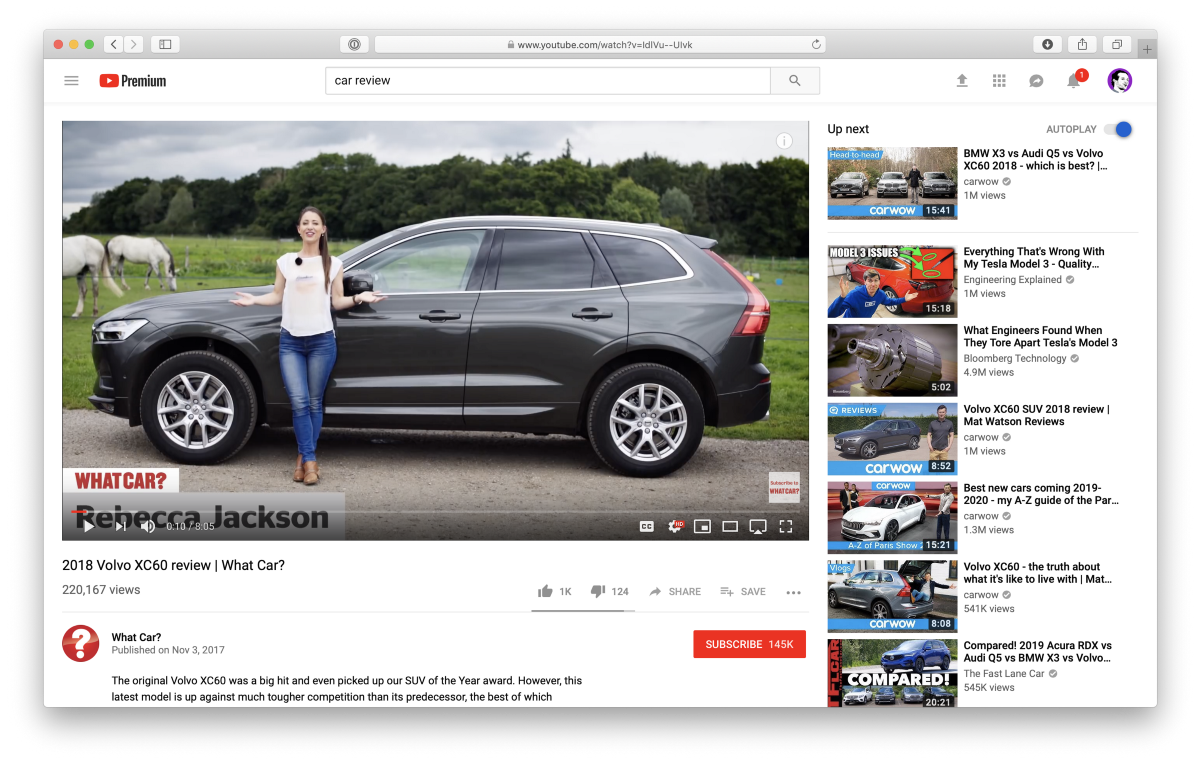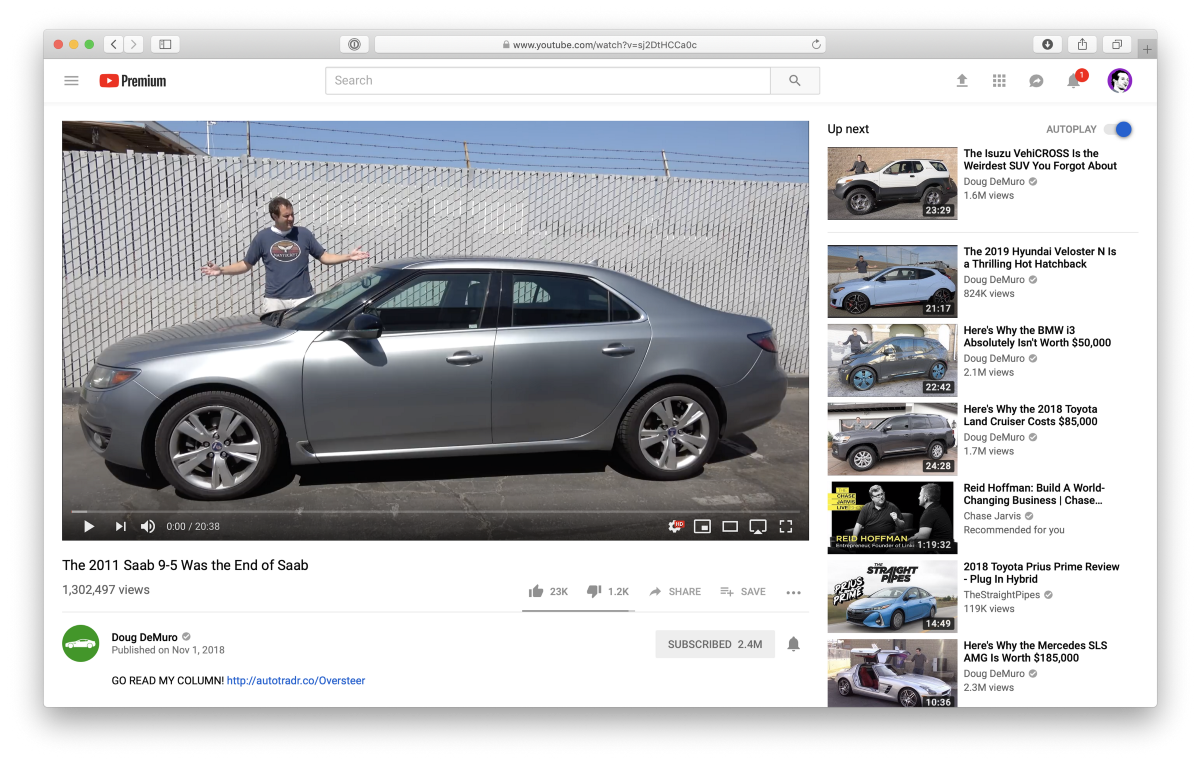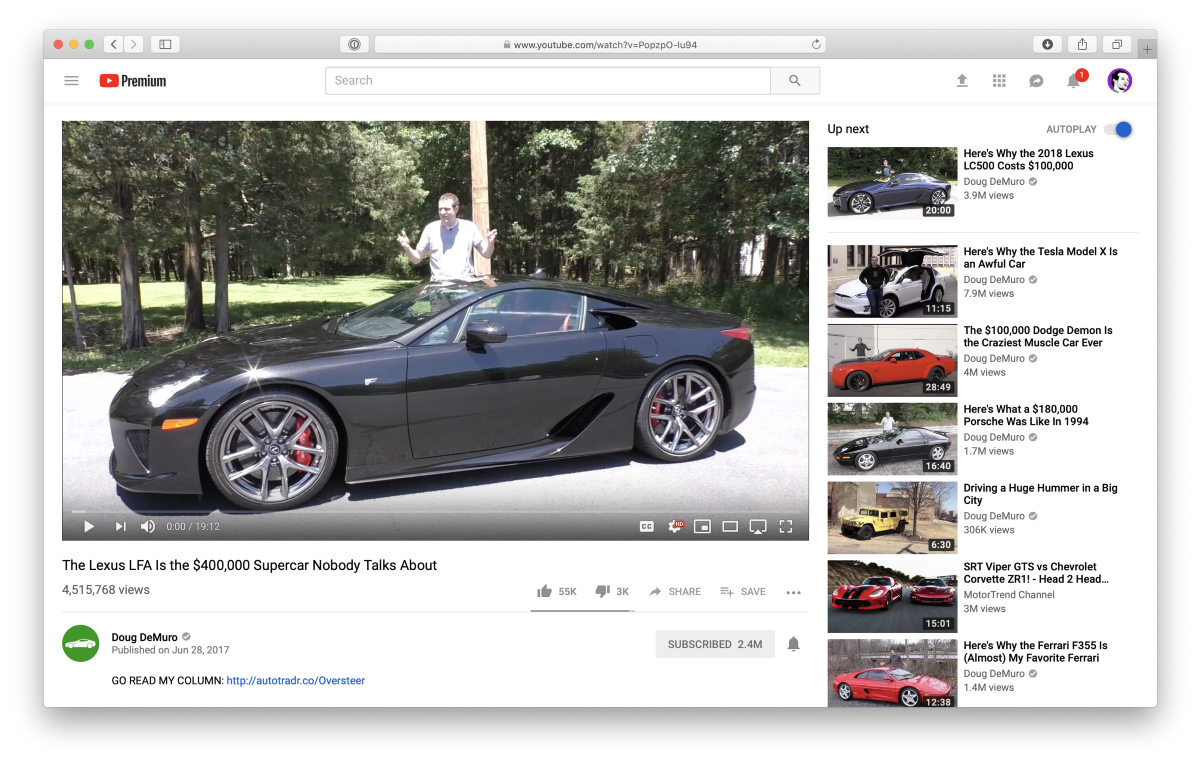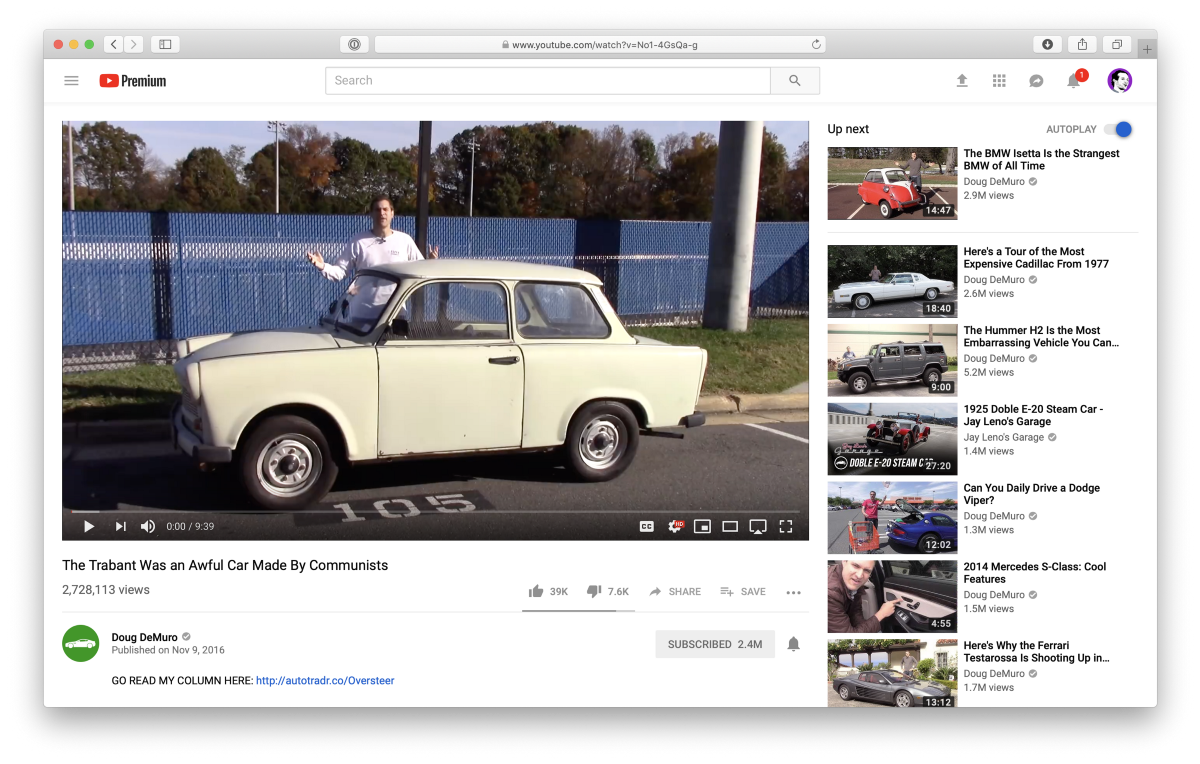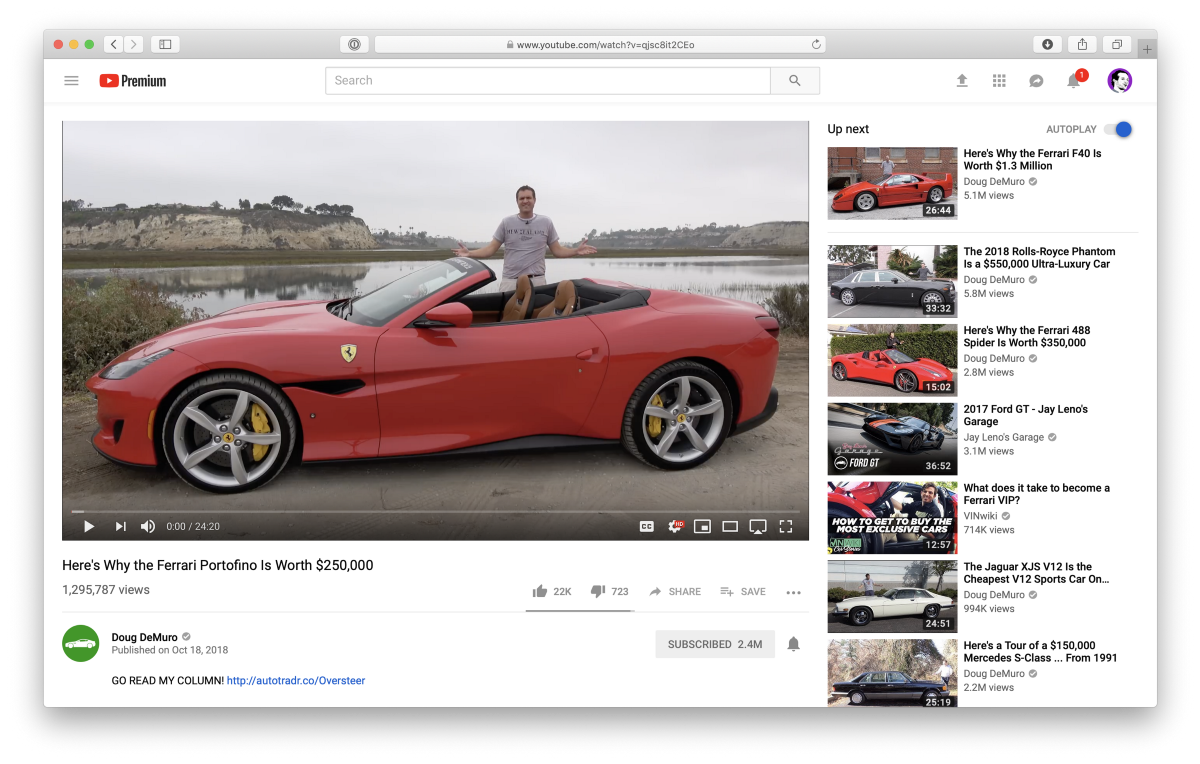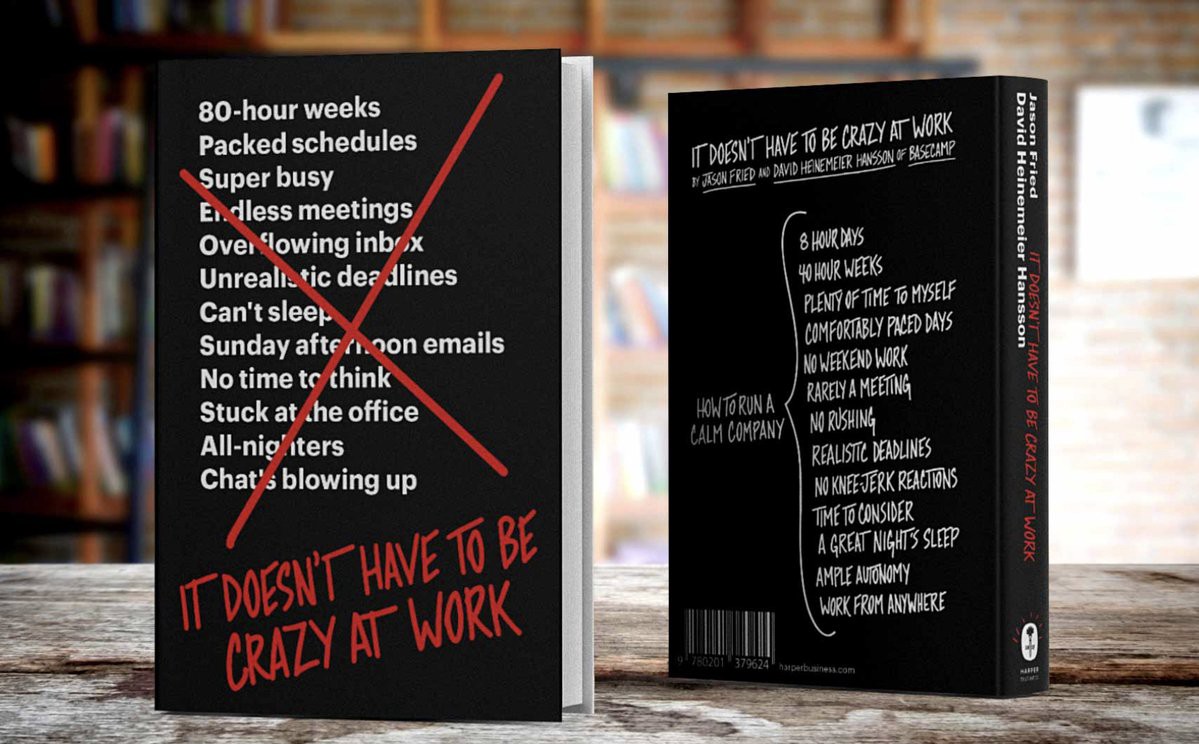Here is just one example of the total wrongness of something I tend to be automatically sure of: everything in my own immediate experience supports my deep belief that I am the absolute centre of the universe; the realest, most vivid and important person in existence. We rarely think about this sort of natural, basic self-centredness because it’s so socially repulsive. But it’s pretty much the same for all of us. It is our default setting, hard-wired into our boards at birth. Think about it: there is no experience you have had that you are not the absolute centre of. The world as you experience it is there in front of YOU or behind YOU, to the left or right of YOU, on YOUR TV or YOUR monitor. And so on. Other people’s thoughts and feelings have to be communicated to you somehow, but your own are so immediate, urgent, real.
David Foster Wallace, “This is Water”
Jason Fried
Founder & CEO at Basecamp. Co-author of Getting Real, Remote, and REWORK.
Kara Swisher and I shoot the shit (and some sacred cows)
Last week I was in NY to record a podcast with Kara Swisher of Recode. I’ve been reading and watching Kara for years, so it was a distinct thrill to finally get to sit opposite her and talk tech, business, VC, why it doesn’t have to be crazy at work, and a variety of other topics. We covered a ton, and it was a fun conversation.
You can listen to the full podcast here. You’ll also find an intro article as well as a lightly edited transcript for the roughly one hour conversation. Hope you dig.
And BTW, if you didn’t know, we have our own podcast called The REWORK Podcast. We record new episodes every two weeks, and sometimes hit with a bonus episode on off weeks. We hope you’ll listen in there as well.
Busy is the new stupid
Looks like I may be doing it right. This is exactly why we don’t have shared calendars at Basecamp.
At Basecamp, everyone controls their own calendar, and no one can see anyone else’s schedule. You can’t claim time on anyone else’s calendar, either. Other people’s time isn’t for you — it’s for them. You can’t take it, chip away at it, or block it off. Everyone’s in control of their time. They can give it to you, but you can’t take it from them.
And by the way, this isn’t a special privilege for ownership or the CEO. Everyone controls their own days at Basecamp. Time isn’t a commodity we trade. No one can turn your day into theirs.
Note: We have a whole chapter called “Calendar Tetris” in It Doesn’t Have to Be Crazy at Work on this very topic. You’ll find it on page 62.
Get to know Max Büsser – a creative powerhouse

Maximilian Büsser is the MB in MB&F. They make wholly original mechanical creations – most of which tell time and fit on your wrist. MB&F’s machines are an acquired taste, and they’re priced out of reach for most, but they’re undeniably creative. I have deep respect for what they make, and how they make it.
Max is the creative force behind the whole thing. And he’s a remarkably thoughtful and insightful fellow. Humble, too. It’s hard to imagine how he manages to make a business like his work, but he does. And then some.
In this wonderful interview (embedded below), Max explains how and where he got his start. How he serendipitously found a mentor. How he mustered the courage to just go for it. Why he collaborates and who/what inspires him. How being a trained engineer allows him to push through and find solutions rather than be roadblocked at someone else’s “this won’t work”. Why creativity isn’t a democracy. He goes into just how challenging it all is, but also how natural it all feels. He also gets very personal and honest about his painful childhood – a childhood which clearly fueled his future drive to find his friends and collaborators.
The one-hour interview is one of the best things I’ve heard in a long time about creativity, business, product design, art, purpose, challenges, going your own way, seeing a vision through, and figuring it all out as you go.
It’s well worth your time. Please listen in:
Note: If the embed above doesn’t work for you, here’s a link to the interview on HODINKEE.com. You can also find the HODINKEE Radio podcast anywhere you subscribe to podcasts.
Putting on some wait
I’m generally patient over the long term, but I can be impatient in the short term. But, really, what’s the rush? Why the hurry? I’ve been asking myself this question more and more lately.
A new year is a good excuse to make a change, so in 2019 I’ve decided to put on some wait. In practice this means choosing the slower option whenever possible.
For example, when shopping online, I’m picking the slowest shipping option (I used to always pick the fastest one). Related, I’ve also cancelled my Amazon Prime membership. I only used it for fast shipping, so it’s of no use anymore.
When confronted with two lines at the grocery store, I’m choosing the longer one.
Even small things like waiting for the next walk symbol. Yeah there’s a good 8 seconds to get across the street, but it’s close enough to just wait.
Whenever there’s an opportunity to pick the wait, I’m picking it. And I’m not filling my time with other things I have to do while waiting – I’m genuinely waiting. Waiting while doing nothing. Idling. If I’m in line, and it’s moving slowly, I’m not reflexively reaching for my phone to soak up the dead space. I’m just enjoying having absolutely nothing to do.
In the end, after all this waiting, I suspect I won’t miss anything. I’ll just have waited. In fact, I think I’ll actually find something: Additional, special moments with nothing to do. Sacred emptiness, a space free of obligation and expectation. New time to simply observe.
In a world where everyone seems to be super busy all the time, bumping into more moments with nothing to do seems like a real discovery.
Down in front!
Doug gets it, most don’t.
Look around YouTube at car reviews, and you’ll see a lot of people standing in front of cars. Below I’ve snapped captures of early frames in six car reviews. These represent the first time the car is shown whole, in profile.
Who’s on review here? The car reviewer or the car? Get out of the way people!
Take it from Doug DeMuro. His reviews always start with him standing behind the car. The car is in full view, in all its glory, at center stage. Doug comes second — he understands what the viewer is there for.
Doug in the background. Car in the foreground. Doug gets it.
True brand awareness

It’s been said that your name is your favorite word. Likewise, a brand’s name is its favorite word. Pair their name with their logo, and it’s a self-love fest.
You can see this play out when you order a physical product from an online store. The shipping box is often branded. Sometimes the tape is even branded. Then once you tear into it, the internal packaging is branded. Then the item, too — often in multiple places. Name, logo, name, logo, name, logo.
There’s nothing inherently wrong about this. Many brands use shipment packaging as advertising. And it’s nice to know when you ordered something from Brand A, and a box from Brand A is waiting for you on your doorstep when you get home.
Except when it’s not for you.
The Chase Jarvis Live show
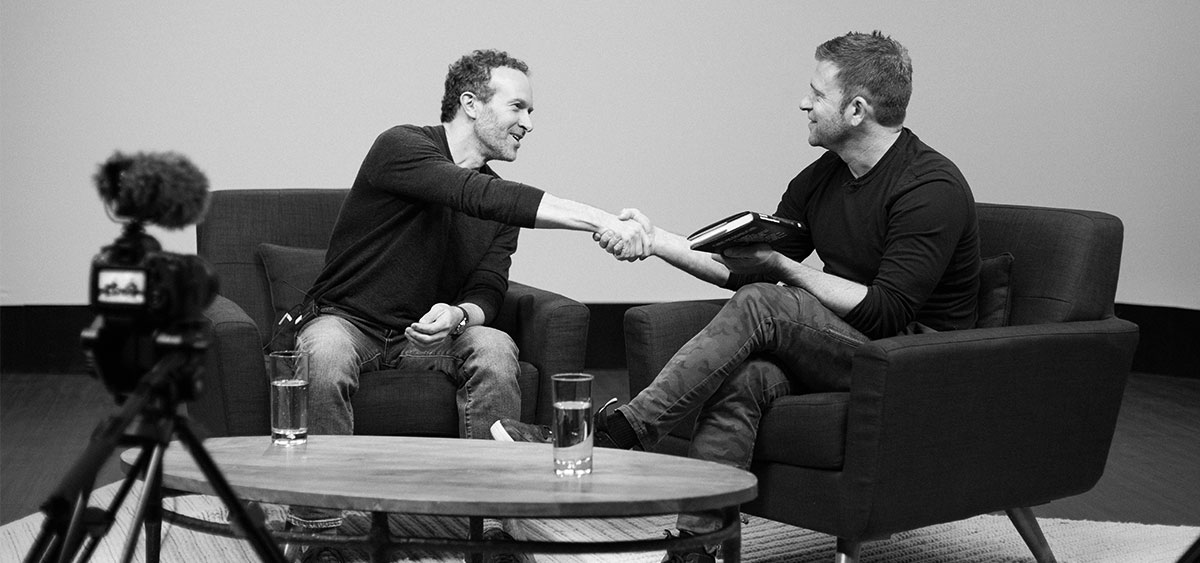
Back in October I was in San Francisco to record an episode of the Chase Jarvis Live show. We talked for nearly two hours about work, life, building calm (and crazy) companies, FOMO + JOMO, philosophy, the downsides of real-time communication tech, not setting goals, saying no, our new book “It Doesn’t Have to Be Crazy at Work”, etc. Loads of stuff, a really fun conversation.
Here’s the full YouTube video:
If you prefer audio-only, you can find the episode on Apple Podcasts, Stitcher, Google Play, Spotify, or wherever you listen to podcasts.
Big thanks to Chase for having me on, and for being such a kind host. He also had David on a while back — well worth watching that one as well.
We hope you enjoy!
Why scrap scrappy?
For the last decade or so, I’ve been on a number of boards, consulted with a number of entrepreneurs, and have been both formally and informally involved in helping a number of young companies find their way.
Many young companies I’ve seen have one thing in common: They can’t wait to grow up. They desperately want to be taken seriously by others. They want to be perceived as sophisticated, as having it all figured out.
This is where they begin to get into trouble. As they technically begin to be able to do more things, it’s the things they can no longer do that turn out to be the big losses.
Take company size, for example. One way to be taken seriously is to hire more people. As a whole, bigger companies are taken more seriously than small companies. Thing is, small has major practical advantages over large. Small companies can do both small and big things. Big companies can not do small things. Once you get to a certain size, you can no longer do the small things. When you’re big, every initiative turns big, like it or not. Except the small things are often all that’s necessary.
Take “systems”, for example. I’ve seen a number of small companies jump into big sophisticated content management, inventory management, e-commerce management platforms. Buying into something the big guys use helps a small company feel like they’ve arrived. Now they’re ready to scale! But now all the sudden they can no longer do the things they need to do. Trying a quick idea they used to be able to just whip up becomes a wrestling match with the new system that prefers you do things the more complicated way. Now “let’s just try that” becomes “when can we schedule a time to figure out how we can try that?”
The other thing that’s lost in transition from small to big are instincts. I’ve seen companies paralyzed by ideas they can’t seem to implement anymore. They could still do things they same way they used to, but they can’t think that way anymore. For example, a small company that would have just spent a couple hours sending out 50 hand-written emails to test a personalized selling campaign, is stuck for days or weeks trying to figure out how to get their new e-commerce platform to automate the same thing. They could still just pick the customers and write the emails by hand, but they’re forgotten how to think about doing it that way. Once you have something in place that’s supposed to be able to do that work for you, you lose flexibility, your mind and muscles atrophy. You cease to be able to be scrappy.
Scrappy is a mindset, and the skills are lossy — once they’re gone, you can never recreate them the same way again. Being scrappy is easier the smaller you are, the younger you are, and the fewer options you have. Hang on to it for as long as possible! Don’t be in a rush to abandon such critical survival instincts.
It happens to all growing companies. We’ve certainly lost our fair share of scrappiness as well. My suggestion: Resist the allure of large — there’s very little payback, especially if you artificially get there before you’re really ready. Be aware — and beware — of the things you give up too early and never get back.
Our new book “It Doesn’t Have to Be Crazy at Work” is out!
Now available in the US, Canada, the UK, Austrailia, and New Zealand. Other countries and languages will follow.
A couple years in the making, our brand new book, “It Doesn’t Have to Be Crazy at Work”, is now available in bookstores near you. There’s a hardcover, paperback (UK markets), audiobook, and ebook.
The Economist says…
“Their book is funny, well-written and iconoclastic and by far the best thing on management published this year.”
800ceoread calls it an Editor’s Choice and says…
…Each [short chapter is] packed with a punch that seems both profound and practical — profound for how clear and different they tend to be from most accepted business wisdom, and practical because almost everything they describe is immediately applicable.
And the ⭐️⭐️⭐️⭐️⭐️ Amazon reviews are flowing in as well. And, BTW, if you’ve read the book, please do leave a review. Thanks much.
If you’ve read and enjoyed REWORK, you’re going to especially love “It Doesn’t Have to be Crazy at Work”. It’s really the spiritual follow-up to REWORK. Irreverent, direct, fluff-free, short-essays, and straight to the point. And because we hate long business books we can never seem to finish, we wrote “It Doesn’t Have to be Crazy at Work” to be read in just about 3 hours.
What’s the book about?
We put it all right on the cover.

The lessons and stories in the book are based on nearly 20 years of experimenting with how to build a calm company. Inside we push back hard against unhealthy work practices, the obsession with growth at all costs, and treating people as if they’re simply limitless resources rather than human beings. We also share the things we’ve tried, and how we came to figure out what works and what doesn’t.
If you’ve got a few minutes, here’s the full intro below to fire you up…
“It’s crazy at work.” How often have you heard that? Or said it yourself? Probably too often.
For many, “it’s crazy at work” has become their normal. But why’s that?
At the root is an onslaught of physical and virtual real-time distractions slicing work days into a series of fleeting work moments.
Tie that together with a trend of over-collaboration, plus an unhealthy obsession with growth at any cost, and you’ve got the building blocks for an anxious, crazy mess.
It’s no wonder people are working longer, earlier, later, on weekends, and whenever they have a spare moment. People can’t get work done at work anymore.
Work claws away at life. Life has become work’s leftovers. The doggy bag. The remnants. The scraps.
That’s just not OK. It’s unacceptable.
What’s worse is that long hours, excessive busyness, and lack of sleep have become a badge of honor for many people these days. Sustained exhaustion is not a badge of honor, it’s a mark of stupidity. Companies that force their crew into this bargain are cooking up dumb at their employees’ expense.
And it’s not just about organizations — individuals, contractors, and solopreneurs are burning themselves out the very same way.
You’d think with all the hours people are putting in, and all the promises of tech’s flavor of the month, the load would be lessening. It’s not. It’s getting heavier.
But the thing is, there’s not more work to be done all of the sudden. The problem is there’s hardly any uninterrupted, dedicated time to do it.
Working more but getting less done? It doesn’t add up. But it does — it adds up to a majority of time wasted on things that don’t matter.
Many modern companies seem to be great at one thing: wasting. Wasting time, attention, money, energy.
Out of the 60, 70, 80 hours a week many are expected to pour into work, how many of those hours are really spent on the work itself? And how many are tossed away in meetings, lost to distraction, and withered away by inefficient business practices? The bulk.
The answer isn’t more hours, it’s less bullshit. Less waste, not more production. And far fewer things that induce distraction, always-on anxiety, and stress.
Stress is an infection passed down from organization to employee, from employee to employee, and then from employee to customer. And it’s becoming resistant to traditional treatments. The same old medicine is only making it worse.
And remember, stress can not be contained. It never stops at the edge of work. It always bleeds into life. It infects your relationships with your friends, your family, your kids.
The promises keep coming. More time management hacks. More ways to communicate. More information spread across separate platforms and disparate places. New demands to pay attention to more and more real-time conversations happening all the time at work. Faster and faster, for what? Panaceas left and right. Snake oil.
On-demand is for movies, TV shows, and podcasts, not for you. Your time isn’t an episode recalled when someone wants it at 10pm on a Saturday night, or every few minutes in the collection of conveyor belt chat room conversations you’re supposed to be following all day long.
If it’s constantly crazy at work, we have two words for you: Fuck that. And two more: Enough already.
At the heart of it all is an unhealthy obsession with rapid growth. Towering, unrealistic expectations drag people down.
It’s time for companies to stop asking their employees to breathlessly chase ever-higher, ever-more artificial targets set by ego, not need. It’s time to stop celebrating this way of working.
Over the last 18 years we’ve been working at making Basecamp a calm company. One that isn’t fueled by stress, or ASAP, or rushing, or late nights, or all-nighter crunches, or impossible promises, or high turnover, or over-collaboration, or consistently missed deadlines, or projects that never seem to end, or manufactured busywork, or incorrect assumptions that lead to systemic institutional anxiety.
No growth-at-all-costs. No constant, churning false busyness. No ego-driven decisions. No keeping up with the Joneses Corporation. No hair on fire.
And yet we’ve been profitable every year since the beginning. We’ve kept our company intentionally small — we believe small is a key to calm.
As a tech company we’re supposed to be playing the hustle game in Silicon Valley, but we’re blissfully far away in Chicago with employees working remotely in 30 different towns around the world.
We each put in about 40 hours a week most of the year, and just 32-hour four-day weeks in the summer. We send people on month-long sabbaticals every three years. We not only pay for people’s vacation time, but we pay for the actual vacation too.
No, not 9pm Wednesday night. It can wait until 9am Thursday morning. No, not Sunday. Monday.
Walk into our office and it feels more like a library and less like a chaotic kitchen. Noise and movement are not indicator of activity and progress — they’re just indicators of noise and movement.
We’re in one of the most competitive industries in the world. An industry dominated by giants and frequent upstarts backed by hundreds of millions of dollars in VC money. We’ve taken zero. Where does our money come from? Our customers. They buy what we’re selling and we treat them exceptionally well. Call us old fashioned.
Our benefits are focused on getting people out of the office, not enticing them to stay longer. Fresh fruits and veggies are delivered to people’s houses, not the kitchen at work. Want to learn to play the guitar in your own time? We’ll gladly support you and pay for that too.
We’ll pay for you to get a massage, but we won’t bring the masseuse to the office. Loosening up for 60 minutes only to tense back up hunched over your desk is faux relaxation. No “stay here” signals. Everything’s about wrapping up your reasonable day, going home, and living your life.
Are there occasionally stressful moments? Sure — such is life. Is every day peachy? Of course not — we’d be lying if we said it was. But we do our best to make sure those are the exceptions. On balance we’re calm — by choice, by practice. We’re intentional about it. We’ve made different decisions than the rest.
We’ve designed our company differently. We’re here to tell you about it, and show you how you can do it. There’s a path. You’ve got to want it, but if you do you’ll realize it’s much nicer over here. You can have a calm company too.
This book points out the diseases plaguing modern workplace and work methods. It calls out false cures, and pushes back against ritualistic time-sucks that have infected the way people work these days. We have a prescription to make it better.
Chaos should not be the natural state at work. Anxiety isn’t a prerequisite for progress. Sitting in meetings all day isn’t required for success. These are all perversions of work — side effects of broken models and follow-the-lemming-off-the-cliff worst practices. Step aside and let the suckers jump.
Calm is profitability.
Calm is protecting people’s time and attention.
Calm is reasonable expectations.
Calm is about 40 hours of work a week.
Calm is ample time off.
Calm is smaller.
Calm is a visible horizon.
Calm is meetings as a last resort.
Calm is contextual communication.
Calm is asynchronous first, real-time second.
Calm is more independence, less interdependence.
Calm is about sustainable practices that can run for the long-term.
By the end of the book you’ll understand it all.
It would mean a lot to us if you’d pick up a copy, absorb the ideas, consider the suggestions, and try to make the work world a better place for a lot more people. We hope you ❤️ it. Got questions? Post ’em below and we’ll do our best to answer everything we can. Thanks in advance for reading!
-Jason and David
